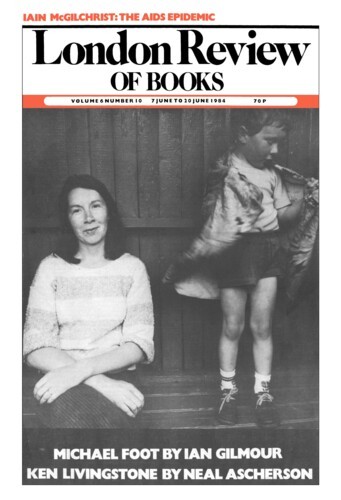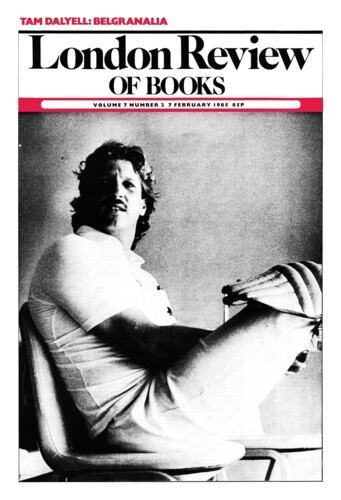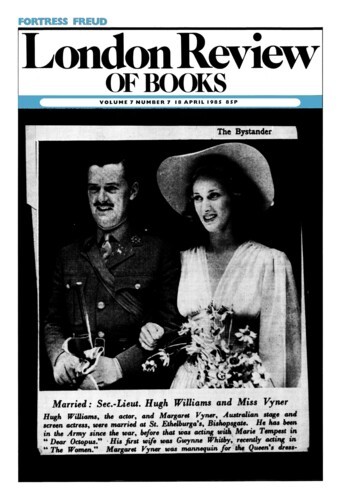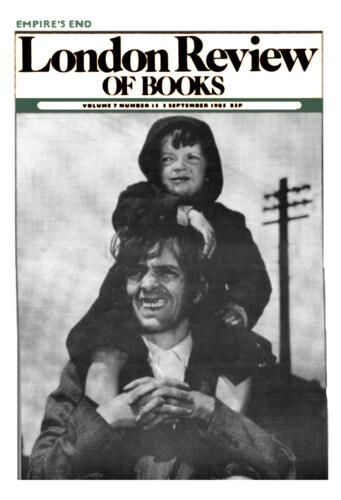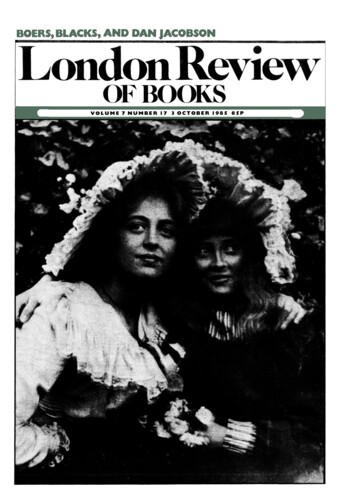Rubbing Up
Michael Church, 7 June 1984
Born within months of each other, both raised under constant scrutiny by powerful grandparents, both made into vehicles for their mothers’ repressed artistic ambitions: the early histories of George Melly and Russell Baker run strikingly in parallel. Their books reveal an even more striking coincidence of form. Melly chooses, in his closing paragraph, to play affectionately along with his mother’s happy delusion that she is fifty years back in the past and the conjuror is coming to tea. Baker begins and ends his story with a baroque variation on exactly the same theme. Senility, that affliction so often viewed with embarrassed horror, is seen by Baker as yet another manifestation of his mother’s courageous resourcefulness – she turned herself into her own time-machine.–
